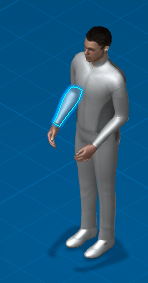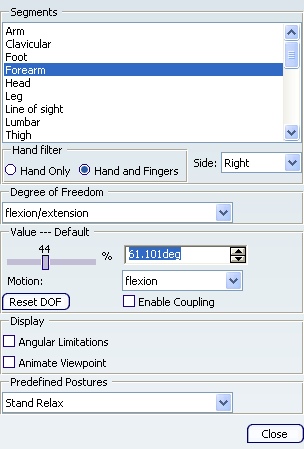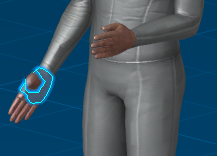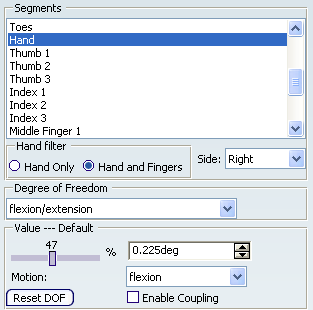General | ||
| ||
Twin Segments (Reach and IK Mode)

This option modifies the user interface behavior of the 3D reach mode and the inverse kinematics (IK) mode. When enabled, the option makes it possible to delete the twin segment when clicking such a segment twice in a row. The twin segment is the visual representation of the segment at its target position, that is, the visual representation of the segment at the compass location. When you activate the IK mode or the 3D reach mode and select a segment, a twin segment is automatically created and displayed at the compass location (it appears in yellow by default, and can be modified using the Display tab); if you select the segment twice in a row, the twin is deleted (assuming the option is on); when clicking on the segment again, the twin is redisplayed, and so on. This option thus makes the selection of a segment act as a toggle for the creation/deletion of the twin.
![]() By default,
the Delete twin segment on second click check box is selected.
By default,
the Delete twin segment on second click check box is selected.
![]()
Angle Reference

This Human Builder option allows changing the way the value of certain angles are displayed in:
- the Posture Editor
- the Angular Limitations command
- the Postural Score Analysis dialog box.
- Default
- The angle values are displayed in such a way that the neutral position (0 deg) of a segment corresponds to its standard anatomic posture.
- Inter-Segment
- The angle values shown are the values between a segment and its parent segment (as circled below). In this Inter-Segment mode, only the first DOF (e.g. flexion/extension) of a segment is affected or modified, except for the hand (wrist), for which the modification is applicable on DOF2 (radial deviation/lunar deviation) as well.


It is important to note that this option does not change the way the angles are calculated. When the Inter-segment option is enabled, the only difference is that, instead of displaying the value of a DOF itself, the software rather displays the Inter-segment value for that DOF; the Inter-segment value being the angle value between a segment and its parent segment as depicted above. The images below are an example of output from the Posture Editor when the Inter-Segment option is enabled. Note that the Value frame now reads Value --- Inter-Segment.


Default is selected.